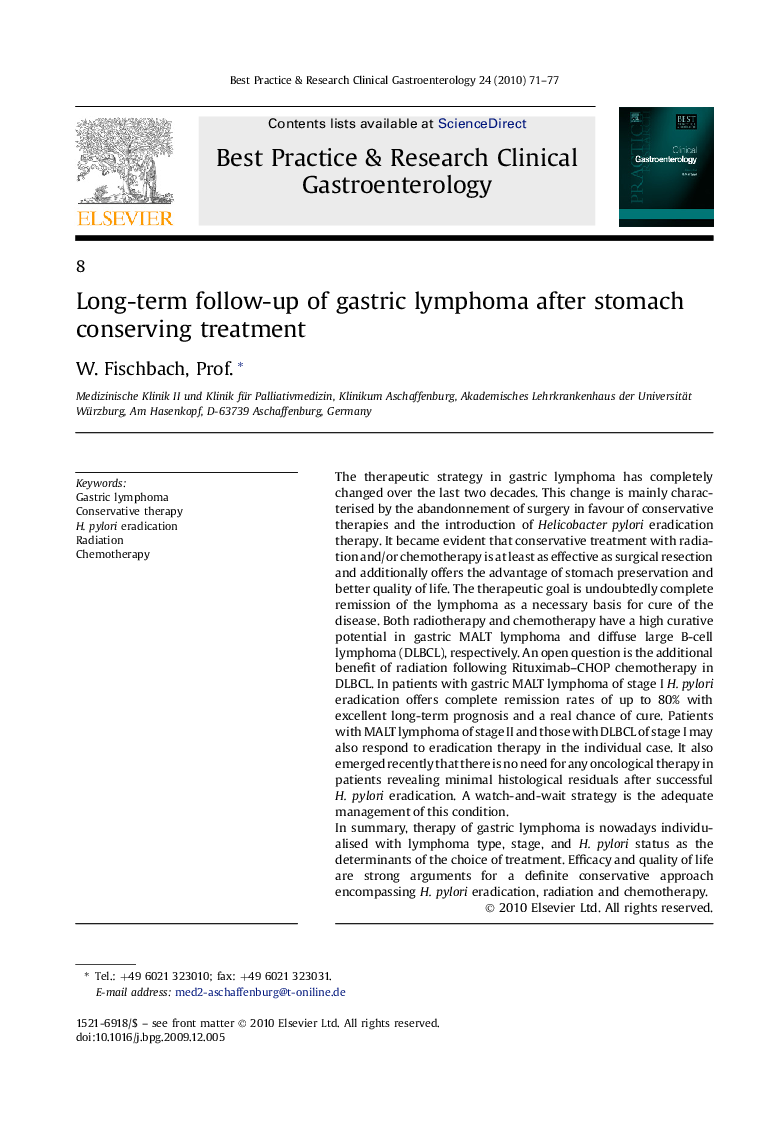| Article ID | Journal | Published Year | Pages | File Type |
|---|---|---|---|---|
| 3254401 | Best Practice & Research Clinical Gastroenterology | 2010 | 7 Pages |
The therapeutic strategy in gastric lymphoma has completely changed over the last two decades. This change is mainly characterised by the abandonnement of surgery in favour of conservative therapies and the introduction of Helicobacter pylori eradication therapy. It became evident that conservative treatment with radiation and/or chemotherapy is at least as effective as surgical resection and additionally offers the advantage of stomach preservation and better quality of life. The therapeutic goal is undoubtedly complete remission of the lymphoma as a necessary basis for cure of the disease. Both radiotherapy and chemotherapy have a high curative potential in gastric MALT lymphoma and diffuse large B-cell lymphoma (DLBCL), respectively. An open question is the additional benefit of radiation following Rituximab–CHOP chemotherapy in DLBCL. In patients with gastric MALT lymphoma of stage I H. pylori eradication offers complete remission rates of up to 80% with excellent long-term prognosis and a real chance of cure. Patients with MALT lymphoma of stage II and those with DLBCL of stage I may also respond to eradication therapy in the individual case. It also emerged recently that there is no need for any oncological therapy in patients revealing minimal histological residuals after successful H. pylori eradication. A watch-and-wait strategy is the adequate management of this condition.In summary, therapy of gastric lymphoma is nowadays individualised with lymphoma type, stage, and H. pylori status as the determinants of the choice of treatment. Efficacy and quality of life are strong arguments for a definite conservative approach encompassing H. pylori eradication, radiation and chemotherapy.
